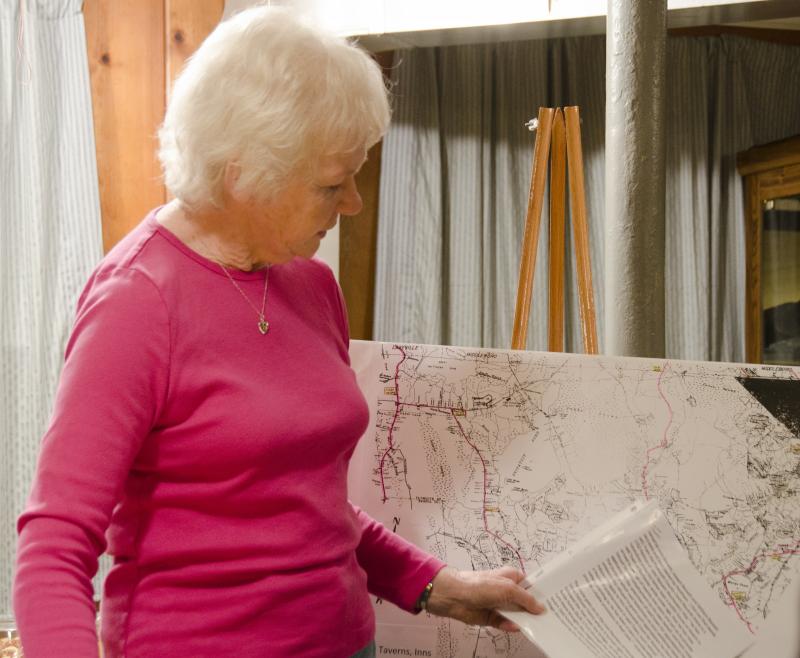Rochester History Society looks at 300 years of taverns, inns, and stagecoach routes
Rochester’s taverns, inns and stagecoach routes were the subject of a presentation by Betty Beaulieu at the Rochester Historical Society on March 21.
Using maps, memoirs, photographs and other historical documents, Beaulieu pieced together a picture of early Rochester over almost 300 years.
“When I did other research over a period of a couple of years, I also collected information on this,” she said.
Stagecoach routes often followed old Native American trails, bringing travelers and mail from Boston, Cape Cod, Plymouth and other areas.
In response to the increased traffic, a number of taverns and inns opened in Rochester.
Despite the smaller size of the town at the time, there were as many as eight people listed as inn holders in 1778.
Although information is incomplete, Beaulieu said that could mean anything from a room in a house where travelers could spend the night to taverns serving alcohol.
Taverns and inns opened and closed over the years as Rochester and its economy evolved.
Coombs Tavern, now a residence on Shipatuit road, has gone through several incarnations through the years—first as a boarding house, then a tavern and inn and a stage store.
In its heyday the popular watering hole was said to produce “liquor so diluted that customers had to keep it near the fire so it wouldn’t freeze,” said Beaulieu.
Even with some questionable alcohol, there were concerns about citizen’s who consumed too much. Beaulieu found one record of an excessive drinking “sinful” man. When an intervention from his church failed, he was turned over to legal authorities.
Ultimately, Beaulieu said, “Taverns were a meeting place.” And they often came with colorful stories.
At one time Rochester had two politically opposed taverns where Tories and Whigs met, respectively, to discuss politics over a pint.
Bootlegger and innkeeper James Winslow constructed peepholes in one wall of his house so he could spot anyone on the road who threatened his homemade brew.
The house still stands complete with doorframes wide enough to roll out barrels of whiskey.
The introduction of railroads in the mid-1800s caused a shift in the stagecoach and inn culture.
Beaulieu read one historical document that said, “It was hailed by everyone except companies of stagecoaches and inns.”
As stagecoaches began to disappear, so did many inns.
However, Beaulieu said even during Prohibition and following when Rochester was a “dry” town, the area had a few places where liquor was sold.
Beaulieu said the Wheel of Fortune Tavern was a reliable place where locals and travelers came to purchase alcohol, served on a Lazy Susan that rotated to a hidden room where the contraband was kept.
Although Beaulieu has done extensive research on Rochester’s tavern culture, she said there are still many innkeepers whose histories have not been explored. The information does take some digging.
“You have to take the clues from here and there,” she said.















